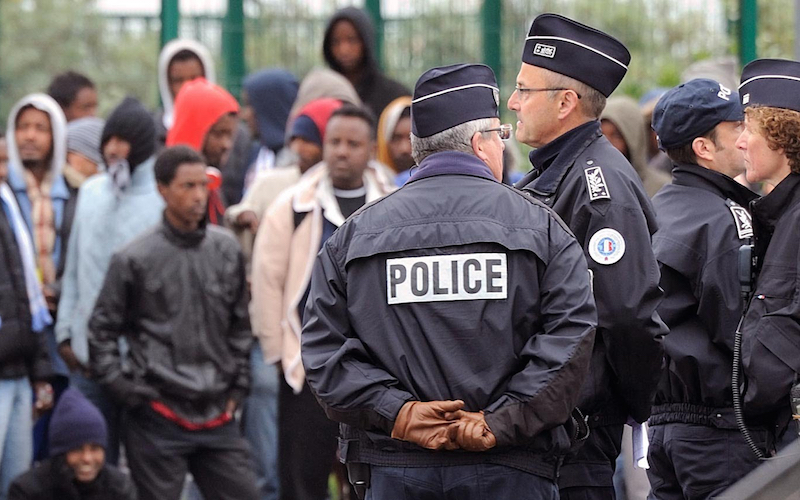
Politics and Poets: Inspiring the EU to Act on Immigration
Thousands of migrants continue to pour into Europe. They cross the Mediterranean under terrifying conditions as they seek to escape the death traps of war, repression and poverty in the homes they leave behind. Nearly 225,000 have arrived in EU nations this year; as of August, 2,000 more have died in the attempt. Their relentless numbers grow, in witness to the suffering that compels them to take the risks.
One of them is a 40-year-old Sudanese man whose journey ended this week near the Eurotunnel exit at Folkestone. His trek from Calais required that he scale four security fences, evade security monitors and run 50 km inside the dark tunnel, along tracks that have fast become the latest monument to Europe’s obtuse and incoherent responses to this humanitarian crisis. But not everyone is tone-deaf to his plight.
Nor do they serve up facile “our streets are not paved with gold” platitudes. This was most recently, and wincingly, proffered by French and UK ministers, as if they were delivering a stern nationalist scolding to starry-eyed and impetuous naïfs who’ve been off on a troublesome little lark.
One poet featured by Leicester activists asked: “When I heard how he ran across continents over rivers through forests through deserts and through tunnels, how could I fail to be inspired?” Apparently, our poets understand what our politicians do not, and it’s well past time for the frightened and fracturing EU to get inspired.
Building more fences in Calais – or along the border between Hungary and Serbia – is not a reflection of the noble EU mission. It’s not the peaceful, unified vision that New York Times columnist Richard Cohen has called both a miracle and, arguably, the greatest achievement of the second half of the 20th century. This is not inspirational nor is the refusal to accept asylum seekers by Austria, Denmark and Britain, or the various other decisions of EU national leaders that Luxembourg Foreign Minister Jean Asselborn has called “perhaps disappointing, in some instances even embarrassing.”
The threats of Italy’s overwhelmed Prime Minister Matteo Renzi to move ahead with his own plans, not to mention the EU struggles over Greece – itself awash in migrants – or the increasing Brexit pressures in the U.K., fall short of an inspiration that would define the EU by purposeful unity and real strategies on immigration. And this, over deciding how to serve 40,000 immigrants, while Turkey offers its hospitality to 2 million.
Choosing strategies that benefit both migrants and the EU
No, there are no easy answers to what Britain’s Home Secretary Theresa May and Bernard Cazeneuve, France’s minister of the interior, rightly called a global migration crisis – even as they’ve opted for the easy answer of protecting the moat around those gold-paved streets. The global forces that drive a man from his home in Sudan to Calais are punishing push factors that expose the need for humanitarian aid in explosive African nations, and the even greater need for sustainable economic investment by the EU.
Those solutions aren’t easy, but neither are the forward-thinking questions that can’t be ignored. Recent demographic forecasts reported by The Economist suggest population growth across Africa by 2050 at nearly 109 percent. At the same time, Europe’s population is expected to drop by 4.3 percent, the only continent expected to see a decrease. The EU needs to make bold foreign policy decisions now that leave behind the haunting history of extractive colonialism and instead validate the future of Africa, while at the same time reassessing its domestic policies to guarantee future growth of its own.
First among them is meaningful reform of the Dublin system, which handcuffs asylum seekers and EU nations alike. The requirements under Dublin that limit the options of asylum-seeking migrants aren’t working according to a new EU study and the revisions of the past now need new provisions to help standardize immigrant reception status and decrease the disproportionate stress on some nations. The study supports 2016 revision efforts to create a more balanced system and process for EU countries. The report also validates a new inspiration, in ways that are as poetic as they are politic and pragmatic. “If any allocation system is to work, a new approach which recognizes not only the ‘vulnerability,’ but also the dignity, agency, and rationality of the asylum seeker is warranted,” reads the report. “Those who have made long and dangerous journeys to safety are entitled to more than physical force to ensure fingerprinting, threats of detention, and deportation guised as welcome.” Quite apart from a closed-border, fortress mindset that threatens Schengen, a new Dublin promotes the unity of the EU.
Further – and perhaps more critically – an EU that is ready to acknowledge its own complicity in the crisis is an EU that’s also ready to confront fear, and an immigration stance rooted in fear. The truth is that the fear of terrorist attacks, of economic uncertainties, of war, of scarce resources compromised by climate and environmental impacts, of elemental change in what it means to be a European. These can’t be overstated when contemplating the underlying reasons for why we’re building fences instead.
The fences won’t work, Dublin doesn’t work and EU change is as inevitable as the need to welcome it. That same welcome can and must be extended to Abdul Rahman Haroun – the man from Sudan – and countless others in need. Europe has risen to meet these challenges before, and it is the legacy of that Europe and its hard-won civility – as well as its poets – that may best serve to engage and inspire now.

